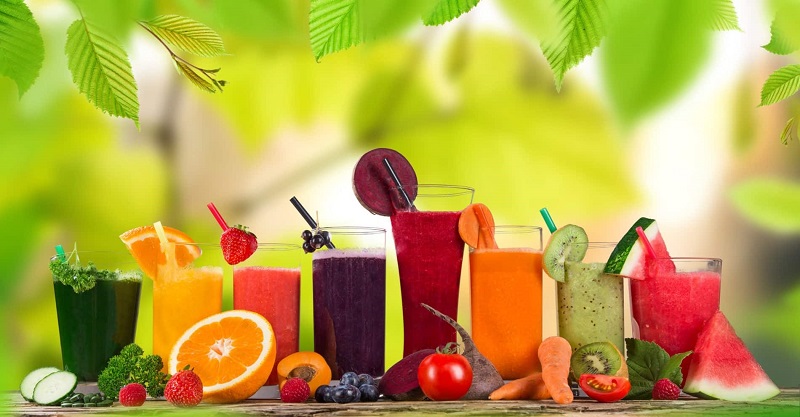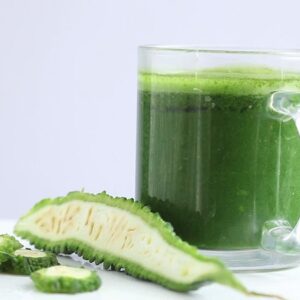Are you struggling with constipation and looking for a natural way to relieve your symptoms? Juices can be a great way to alleviate constipation, as they are packed with essential nutrients and fiber that can help promote healthy digestion. In this article, we will explore the 8 best juices for constipation, along with homemade recipes, dosage, and benefits to help you find relief.
Why Drink Juices For Constipation?
Constipation can be a frustrating and uncomfortable condition that affects many individuals. It is characterized by infrequent bowel movements, difficulty passing stool, and abdominal discomfort. While there are various over-the-counter medications available to relieve constipation, they may not be suitable for everyone. Drinking juices is a natural and gentle way to promote regular bowel movements and alleviate constipation symptoms.
How Do Juices Help Relieve Constipation?
- Rich in Fiber: Many fruits and vegetables used to make juices are high in fiber, which is essential for healthy digestion. Fiber adds bulk to stool, making it easier to pass through the digestive tract.
- Hydration: Staying hydrated is crucial for maintaining regular bowel movements. Juices are an excellent way to increase your fluid intake, which can help soften stool and promote bowel regularity.
- Natural Laxative Properties: Certain fruits, such as prunes and pears, contain natural laxatives that can help stimulate bowel movements. Drinking juices made from these fruits can aid in relieving constipation.
- Gut Health: The vitamins, minerals, and antioxidants found in juices can support overall gut health, promoting a balanced digestive system and relieving constipation symptoms.
Homemade Juice Recipes For Constipation:
Discover the benefits of drinking juices for constipation relief and learn how incorporating nutrient-rich juices into your daily routine can promote healthy digestion naturally.
1. Prune Juice:
Prunes are well known for their natural laxative properties, making prune juice an effective remedy for constipation. Simply blend dried prunes with water to create a smooth juice that can help promote bowel movements.
2. Lemon Juice:
Lemon juice is high in vitamin C and citric acid, which can help stimulate your digestive system. Mix freshly squeezed lemon juice with water and a touch of honey for a refreshing and constipation-relieving drink.
3. Aloe Vera Juice:
Aloe vera is known for its soothing and anti-inflammatory properties, making it a great choice for relieving constipation. Blend fresh aloe vera gel with water or add it to other fruit juices for added benefits.
4. Apple Juice:
Apples are rich in fiber, which can help regulate your digestive system and alleviate constipation. Simply juice fresh apples or blend them with water for a delicious and nutritious drink.
5. Spinach Juice:
Spinach is a powerhouse of nutrients and fiber, making spinach juice an excellent choice for promoting healthy digestion. Blend fresh spinach with water or mix it with other fruit juices for a nutrient-packed drink.
6. Carrot Juice:
Carrots are rich in fiber and antioxidants, making carrot juice a great option for combating constipation. Juice fresh carrots or blend them with other ingredients for a tasty and effective remedy.
7. Ginger Juice:
Ginger has natural anti-inflammatory properties that can help soothe your digestive system and relieve constipation. Blend fresh ginger with water or mix it with other juices for added benefits.
8. Prickly Pear Juice:
Prickly pears are high in fiber and antioxidants, making prickly pear juice an effective solution for constipation. Simply blend fresh prickly pears with water for a delicious and constipation-relieving drink.
Tips for Incorporating Juices Into Your Routine
- Start your day with a glass of fresh juice to kickstart your digestive system.
- Choose organic and fresh fruits and vegetables for the best quality and nutrients.
- Experiment with different combinations of fruits and vegetables to find what works best for you.
- Avoid juices with added sugars or artificial ingredients, as they may worsen constipation symptoms.
- Consult with a healthcare provider or nutritionist before making significant changes to your diet, especially if you have underlying health conditions.
What are the Symptoms of Constipation?
- Infrequent bowel movements: One of the main symptoms of constipation is having fewer than three bowel movements per week. If you find yourself going for several days without passing stool, you may be constipated.
- Hard or lumpy stools: When you do have a bowel movement, the stool may be dry, hard, and difficult to pass. This can cause straining and discomfort during bowel movements.
- Bloating and abdominal discomfort: Constipation can lead to bloating and a feeling of fullness in the abdomen. You may also experience cramping or sharp pains in your stomach.
- Incomplete evacuation: Even after a bowel movement, you may feel like your bowels are not empty. This can lead to a constant feeling of needing to pass stool.
- Rectal bleeding: Straining during bowel movements can cause small tears in the skin around the anus, leading to bleeding. If you notice blood on the toilet paper or in the toilet bowl, it may be a sign of constipation.
What Causes Constipation?
Constipation can be a frustrating and uncomfortable experience for many people. It occurs when bowel movements become less frequent and difficult to pass. Several factors can contribute to constipation, ranging from dietary choices to lifestyle habits. In this article, we will explore the various causes of constipation and provide tips on how to alleviate symptoms.
1. Dietary Factors:
One of the most common causes of constipation is a lack of fiber in the diet. Fiber helps to add bulk to the stool, making it easier to pass through the digestive system. A diet low in fiber-rich foods such as fruits, vegetables, and whole grains can lead to constipation. Additionally, not drinking enough water can also contribute to constipation, as fluids help to soften the stool and facilitate bowel movements.
2. Lack of Physical Activity:
Leading a sedentary lifestyle can also be a contributing factor to constipation. Regular physical activity helps to stimulate the muscles in the intestines, promoting healthy digestion and bowel movements. Lack of exercise can cause the digestive system to slow down, making it difficult for stool to pass through the colon.
3. Medications:
Certain medications can have constipation as a side effect. Opioid pain medications, antidepressants, and iron supplements are known to cause constipation in some individuals. If you are experiencing constipation as a result of medication, it is important to speak with your healthcare provider to explore alternative options or ways to manage symptoms.
4. Changes in Routine:
Travelling, changes in routine, and stress can all impact the digestive system and lead to constipation. The body’s internal clock, known as the circadian rhythm, plays a crucial role in regulating bowel movements. Disruptions to this rhythm can result in constipation for some individuals. Finding ways to reduce stress and maintain a consistent routine can help alleviate symptoms of constipation.
5. Medical Conditions:
In some cases, constipation may be a symptom of an underlying medical condition. Conditions such as irritable bowel syndrome (IBS), hypothyroidism, and diabetes can all contribute to constipation. If you are experiencing chronic constipation or have other symptoms that are concerning, it is important to consult with a healthcare provider for further evaluation and treatment.
Dosage and Benefits:
It’s important to note that while these juices can help alleviate constipation, it’s essential to consume them in moderation to avoid any adverse effects. Start with small amounts and gradually increase your intake as needed.
The benefits of these juices extend beyond just relieving constipation. They are also packed with essential vitamins, minerals, and antioxidants that can help improve overall digestive health, boost your immune system, and promote overall well-being.
Incorporating these juices into your daily routine can not only help alleviate constipation but also provide your body with the essential nutrients it needs to function optimally.
So, next time you’re feeling constipated, why not try one of these delicious and nutritious juices to find relief naturally?
In conclusion, juices can be a fantastic way to relieve constipation and promote healthy digestion. With these 8 best juices for constipation, along with homemade recipes, dosage, and benefits, you can find a natural solution to your digestive woes. Remember to consume these juices in moderation and enjoy the many benefits they have to offer. Cheers to a happier and healthier digestive system!





